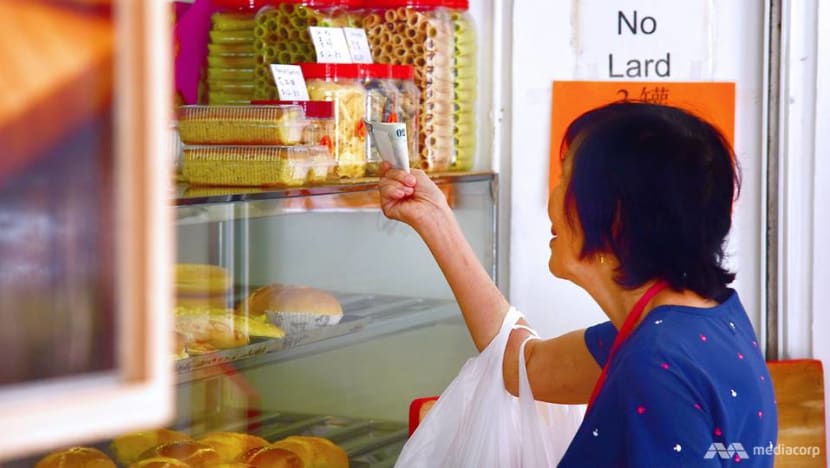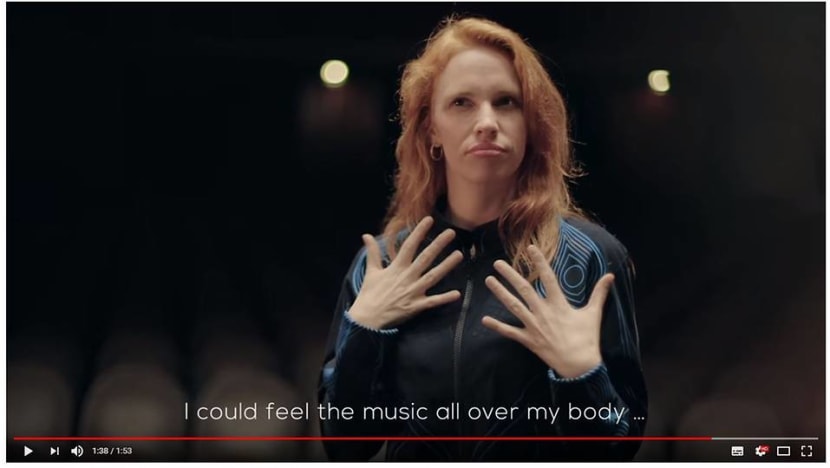commentary Singapore
Commentary: Make social impact a qualifying condition for Govt grants
Where innovation to transform society is needed, businesses, especially those receiving government grants and assistance, should be key partners, says executive director of the Lien Centre for Social Innovation.

File photo of a woman paying for items. (Photo: Gaya Chandramohan)
SINGAPORE: There has been a lot of responses and commentaries regarding the latest budget speech delivered by Finance Minister Heng Swee Keat in Parliament on Feb 19.
Some might ask why the Government doesn’t provide a specific funding structure for social enterprises, or whether social enterprises are being left out of government start-up grant schemes yet again.
In all these questions, people forget social entrepreneurship is not an industry. It never was and should never be.
Social entrepreneurs are entrepreneurs first and foremost - they must run a profitable and scalable company in order to compete in the open market. That’s what sets them apart from their non-profit colleagues.
Social entrepreneurs have to think about profitability and market growth just like any other start-up founder. Social entrepreneurship is a type of entrepreneurship; thus, it can exist within many, if not every sector.
Start-up grants and incentives are designed to support start-ups and businesses in general.
So social entrepreneurs can still take advantage of the Singapore Government’s grants and incentives.
BEING SOCIALLY RESPONSIBLE SHOULD BE IN COMPANIES' DNA
Social entrepreneurship shouldn’t be singled out because it is not an outlier. It ought to be the basic foundation of all enterprises. Being socially responsible should be part of a company’s DNA.
If there is one thing that I hope the Government would do moving forward - that would be to make social impact one of the qualifiers for businesses in receiving grants and tax breaks.
All businesses and start-ups must explain how they can positively impact the lives of Singaporeans and contribute to the betterment of our country.
Positive impact must go beyond just mere job creation. What kind of jobs are being created? Are employees paid fair wages? Do the created jobs support working parents so they can take care of their families and ageing parents?
As Mr Heng said, we need integrated efforts across all stakeholders to build a better Singapore for everyone. This could be a form of a large-scale “impact grant” – a unique model that Singapore could adopt.
READ: A commentary on why businesses must shoulder social responsibilities.
MAKE A SOCIAL IMPACT WITHIN ASEAN
As mentioned by Mr Heng, the shift of global economic weight to Asia is great news for all businesses, including social enterprises.
That means entrepreneurs can produce and market their products and services without the need to look solely at Europe and North America as potential markets.
As part of the ASEAN community, I also see our role in contributing to the social footprint of our region by working and empowering communities around us. Whenever ASEAN does well, Singapore does too
Moreover, the ever-growing middle class in ASEAN can’t be overlooked. An article by Make The Change Singapore states:
One of the primary aims of the AEC (ASEAN Economic Community) is to bring about more equitable economic development across the region. With that in mind, ASEAN can then march forward together to greet investors and foreign interest worldwide. This aligns with the core of social entrepreneurship - firms seek to be financially sustainable while impacting the community for good.
INNOVATION THAT ADDRESSES SOCIETY'S NEEDS
Mr Heng also talked about the need for innovation within the education sector, as “securing better jobs and higher wages will not be just about how well we did in school, but how well we continue to learn, relearn, adapt and grow throughout our lives”.
With schools increasingly aspiring to provide experiential learning environments and better equip their graduates with skills and tools for the new digital age, a new breed of innovative social enterprises can help on both counts.
Growing Home is one example, a Beijing-based organisation founded in 2008 with the mission of addressing critical youth development issues in China, including employment and youth psychology among others.
The organisation has developed a low-cost audio library of over 1,000 bedtime stories, along with teacher training on story teaching.
Another example is Night Zookeeper, an online writing tool, class blog and library of interactive lessons, based out of the United Kingdom.

The company partnered with Edinburgh Zoo to produced interactive lessons to teach children amazing animal facts, changing the way students learn by making it more fun.
TECHNOLOGY TO ASSIST THOSE WITH DISABILITIES
Mr Heng highlighted technological innovation as a way to transform the lives of many Singaporeans in a positive way. One area to look closely at is how to utilise technology in assisting those with disabilities.
One example is The Afari Mobility Aid, a US-based start-up. Its Afari i7 is a state-of-the art, aesthetically designed device to aid upright mobility and to enable persons who need or want balance, stability or weight-bearing assistance to participate in outdoor jogging, running and long-distance walking activities in diverse terrain.
Another tech-focused company called CuteCircuit based out of London has developed a shirt that helps hearing-impaired people process music by feeling it, literally.
The company created a product called Sound Shirt, which transforms sound into sensations, providing those that wear the shirts a whole new way of internalising sound.

Top & Derby, based out of Canada, is trying to redesign walking sticks and canes.
The company claims that its soft silicone covered handle has a distinct upturned nose which is comfortable to hold and intuitively positions the hand directly over the wood shaft.
This unique detail also allows the cane to rest against a wall effortlessly for quick access; it can be propped up on its nose or side, without the cane slipping or falling over as easily as generic canes often do.
Businesses are designed to create jobs and generate revenues. That’s a given. And we applaud those that continue doing so.
But we should look beyond that - and see what positive social impact a business can bring to our nation as a filter to receiving grant assistance.
Product innovations don’t come cheap, and start-ups can utilise government grants, tax breaks and deductions to soften the capital expenditure.
The Government has set forth its Budget 2018. It is now time for us to take advantage of the support we can receive and focus on developing the next generation of an innovative society, in which our products and services not only bring in revenues and create jobs, but also positively impact Singapore.
Jonathan Chang is executive director of the Lien Centre for Social Innovation at the Singapore Management University.















